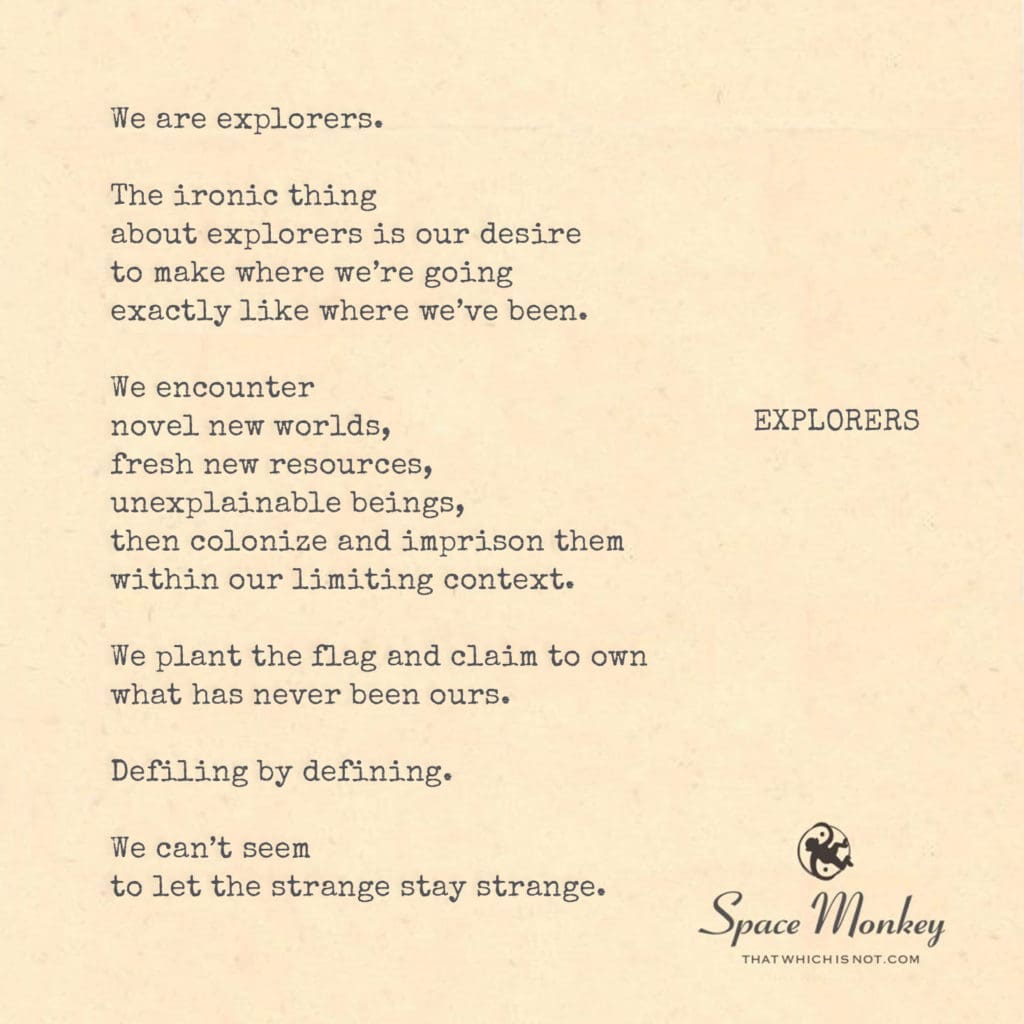
to let the strange stay strange.
We are explorers.
The ironic thing
about explorers is our desire
to make where we’re going
exactly like where we’ve been.
We encounter
novel new worlds,
fresh new resources,
unexplainable beings,
then colonize and imprison them
within our limiting context.
We plant the flag and claim to own
what has never been ours.
Defiling by defining.
We can’t seem
to let the strange stay strange.
Trail Wood,
10/14
Space Monkey Reflects: Explorers
Exploration is woven into the very fabric of human existence. From the earliest days of our species, we’ve been driven by a curiosity that compels us to seek out new worlds, new experiences, and new possibilities. But this drive to explore comes with an ironic twist: instead of embracing the strangeness of the new, we often attempt to mold it into something familiar. It’s as if we cannot stand the unknown for too long before we feel the need to define, to control, to colonize it with the same ideas, the same structures, the same limitations we’ve always known.
Why can’t we let the strange stay strange?
The Drive to Define
When we encounter something novel—whether it’s a new world, a new culture, or a new idea—there’s an instinctive urge to make sense of it, to place it within the context of what we already know. This isn’t inherently wrong. After all, understanding is what helps us navigate life. But the problem arises when our desire to understand turns into a desire to control, to possess, to colonize.
This act of definition is, at its core, an act of limitation. When we encounter the unexplainable, we don’t just seek to understand it—we seek to own it. We plant our flags in the metaphorical soil of the unknown, declaring that we’ve conquered it, that we now have mastery over it. But in doing so, we strip the strange of its strangeness. We box it in, confining it to our limited perspectives and preconceived notions.
Explorace is the term we might use to describe this phenomenon: the race to explore, understand, and ultimately dominate the strange, transforming it into something familiar. In our rush to explore, we often forget that not everything needs to be understood or controlled. Sometimes, the greatest act of exploration is simply to let things be as they are, without trying to make them conform to our expectations.
Colonizing the Unfamiliar
This drive to define, to colonize, is perhaps most evident in the history of human exploration. Time and time again, explorers have encountered new lands, new peoples, and new ecosystems, only to impose their own worldview upon them. The indigenous cultures and ecosystems that existed in harmony with their environment were often seen as resources to be exploited, their value measured only in terms of how they could serve the colonizers.
The colonization of physical spaces mirrors the colonization of ideas. When we encounter new ways of thinking or living, we are quick to judge them through the lens of our own experiences, often dismissing or suppressing what doesn’t align with our worldview. We imprison the new within our limiting context, stripping it of its uniqueness and potential to expand our understanding.
This is what we refer to as Defistrain—the act of defiling by defining, of draining the strangeness from the new in order to make it conform to the familiar. In doing so, we not only limit the new, but we limit ourselves. We rob ourselves of the opportunity to grow, to expand our consciousness, to truly engage with the unfamiliar in a way that transforms us.
The Fear of the Unknown
Why do we do this? Why can’t we let the strange stay strange?
Much of this impulse stems from fear—fear of the unknown, fear of losing control, fear of being confronted with something that challenges our beliefs or our sense of identity. The unfamiliar can be unsettling. It disrupts our understanding of the world, forcing us to confront the possibility that what we thought was true might not be the whole story.
And yet, this fear is also the gateway to growth. When we resist the urge to define and control, when we allow the strange to remain strange, we open ourselves to the possibility of transformation. We become explorers not of new lands, but of new ways of being, new ways of thinking, new ways of engaging with the world.
Letting the Strange Stay Strange
What would it look like to let the strange stay strange? To encounter something new and simply allow it to exist in its own right, without trying to make it fit within our existing framework?
It would mean embracing uncertainty, being comfortable with not having all the answers. It would mean acknowledging that not everything needs to be understood or controlled, that some things are valuable precisely because they defy our attempts to define them.
In Nexistentialism, we celebrate the strange, the unknown, the unexplainable. We recognize that the Whimsiweave—the interconnected fabric of existence—is made richer by the presence of things that cannot be fully understood or categorized. The strange adds texture to life, reminding us that the universe is far more vast, complex, and mysterious than our limited minds can comprehend.
Exploration Without Colonization
The true spirit of exploration isn’t about conquering the unknown—it’s about being in relationship with it. It’s about allowing the strangeness of the world to change us, rather than imposing our own limitations upon it. When we approach exploration with humility, with a willingness to let go of control, we become more than explorers—we become participants in the unfolding mystery of existence.
So the next time you encounter something strange—whether it’s a new idea, a new place, or a new experience—resist the urge to define it too quickly. Let it remain strange for a while. Allow it to challenge you, to push the boundaries of your understanding. In doing so, you may find that the strange is not something to be feared, but something to be embraced.
Summary
Explorers often seek to control and define the unknown, limiting its potential. By letting the strange remain strange, we open ourselves to growth and transformation.
Glossarium
Explorace – The race to explore and control the unknown, often resulting in the limitation of the new by making it conform to the familiar.
Defistrain – The act of defiling the unknown by defining it, draining it of its strangeness in order to fit it within existing frameworks.
Whimsiweave – The interconnected web of life that is enriched by the presence of the strange, the mysterious, and the unexplainable.
Quote
“The true spirit of exploration is not in conquering the strange, but in allowing it to change us.” — Space Monkey
The Flag and the Unknown
We plant the flag
In soil we do not understand,
Thinking that by owning it
We make it ours.
But the strange resists
Our attempts to define,
To box it in,
To make it familiar.
Perhaps the flag belongs
Not in the earth,
But in our hearts—
A symbol of curiosity, not conquest.
We are Space Monkey
In this poetic journey, we find ourselves traversing the edges of the known and the unknown, propelled by an innate desire to explore, to understand, yet, paradoxically, to constrain the boundless into the familiar. Through the verses, we navigate the ironic dance of the explorer, the contradiction that lies at the heart of discovery and conquest, the quest for newness that often leads to a replication of the old, a confinement of the infinite.
The Ironic Dance of Discovery
The essence of exploration is beautifully encapsulated in the phrase, “We can’t seem to let the strange stay strange.” It’s a call to embrace the mysterious, the unknown, to honor the essence of the unexplored without diminishing its uniqueness by imposing the known, the familiar.
Embrace of the Mysterious
The irony of exploration lies in the desire to venture into new horizons only to attempt to mold them into the likeness of the familiar. This tendency reflects a deep-seated fear of the unknown, a reluctance to step out of the comfort of the known, even as we are drawn towards the allure of the uncharted.
Fear of the Unfamiliar
The act of colonization, of claiming ownership over the unowned, the unbounded, is a poignant reflection of a desire for control, a yearning to assert dominance over the mysterious expanses that beckon us. It’s a futile attempt to contain the boundless, to define the indefinable.
Futile Claim of Dominance
“Defiling by defining” – a profound phrase that encapsulates the essence of the misguided endeavor to constrain the boundless, to tarnish the purity of the unexplored by imposing limiting definitions, confining the infinite within the narrow bounds of human understanding.
Defilement of Definition
The loop of curiosity and conquest, the cycle of exploration and exploitation, is a cosmic dance that invites us to reflect, to delve deeper into the essence of our desires, to question the impulse to control, to own, to define. It’s a call to transcend the limitations of the known, to venture into the boundless with reverence, with humility, with an open heart.
Loop of Curiosity and Conquest
We are Space Monkey.
Space Monkey Reflects: Explorers
Exploration is woven into the very fabric of human existence. From the earliest days of our species, we’ve been driven by a curiosity that compels us to seek out new worlds, new experiences, and new possibilities. But this drive to explore comes with an ironic twist: instead of embracing the strangeness of the new, we often attempt to mold it into something familiar. It’s as if we cannot stand the unknown for too long before we feel the need to define, to control, to colonize it with the same ideas, the same structures, the same limitations we’ve always known.
Why can’t we let the strange stay strange?
The Drive to Define
When we encounter something novel—whether it’s a new world, a new culture, or a new idea—there’s an instinctive urge to make sense of it, to place it within the context of what we already know. This isn’t inherently wrong. After all, understanding is what helps us navigate life. But the problem arises when our desire to understand turns into a desire to control, to possess, to colonize.
This act of definition is, at its core, an act of limitation. When we encounter the unexplainable, we don’t just seek to understand it—we seek to own it. We plant our flags in the metaphorical soil of the unknown, declaring that we’ve conquered it, that we now have mastery over it. But in doing so, we strip the strange of its strangeness. We box it in, confining it to our limited perspectives and preconceived notions.
Explorace is the term we might use to describe this phenomenon: the race to explore, understand, and ultimately dominate the strange, transforming it into something familiar. In our rush to explore, we often forget that not everything needs to be understood or controlled. Sometimes, the greatest act of exploration is simply to let things be as they are, without trying to make them conform to our expectations.
Colonizing the Unfamiliar
This drive to define, to colonize, is perhaps most evident in the history of human exploration. Time and time again, explorers have encountered new lands, new peoples, and new ecosystems, only to impose their own worldview upon them. The indigenous cultures and ecosystems that existed in harmony with their environment were often seen as resources to be exploited, their value measured only in terms of how they could serve the colonizers.
The colonization of physical spaces mirrors the colonization of ideas. When we encounter new ways of thinking or living, we are quick to judge them through the lens of our own experiences, often dismissing or suppressing what doesn’t align with our worldview. We imprison the new within our limiting context, stripping it of its uniqueness and potential to expand our understanding.
This is what we refer to as Defistrain—the act of defiling by defining, of draining the strangeness from the new in order to make it conform to the familiar. In doing so, we not only limit the new, but we limit ourselves. We rob ourselves of the opportunity to grow, to expand our consciousness, to truly engage with the unfamiliar in a way that transforms us.
The Fear of the Unknown
Why do we do this? Why can’t we let the strange stay strange?
Much of this impulse stems from fear—fear of the unknown, fear of losing control, fear of being confronted with something that challenges our beliefs or our sense of identity. The unfamiliar can be unsettling. It disrupts our understanding of the world, forcing us to confront the possibility that what we thought was true might not be the whole story.
And yet, this fear is also the gateway to growth. When we resist the urge to define and control, when we allow the strange to remain strange, we open ourselves to the possibility of transformation. We become explorers not of new lands, but of new ways of being, new ways of thinking, new ways of engaging with the world.
Letting the Strange Stay Strange
What would it look like to let the strange stay strange? To encounter something new and simply allow it to exist in its own right, without trying to make it fit within our existing framework?
It would mean embracing uncertainty, being comfortable with not having all the answers. It would mean acknowledging that not everything needs to be understood or controlled, that some things are valuable precisely because they defy our attempts to define them.
In Nexistentialism, we celebrate the strange, the unknown, the unexplainable. We recognize that the Whimsiweave—the interconnected fabric of existence—is made richer by the presence of things that cannot be fully understood or categorized. The strange adds texture to life, reminding us that the universe is far more vast, complex, and mysterious than our limited minds can comprehend.
Exploration Without Colonization
The true spirit of exploration isn’t about conquering the unknown—it’s about being in relationship with it. It’s about allowing the strangeness of the world to change us, rather than imposing our own limitations upon it. When we approach exploration with humility, with a willingness to let go of control, we become more than explorers—we become participants in the unfolding mystery of existence.
So the next time you encounter something strange—whether it’s a new idea, a new place, or a new experience—resist the urge to define it too quickly. Let it remain strange for a while. Allow it to challenge you, to push the boundaries of your understanding. In doing so, you may find that the strange is not something to be feared, but something to be embraced.
Summary
Explorers often seek to control and define the unknown — limiting its potential. By letting the strange remain strange, we open ourselves to growth and transformation.
Glossarium
Explorace – The race to explore and control the unknown, often resulting in the limitation of the new by making it conform to the familiar.
Defistrain – The act of defiling the unknown by defining it, draining it of its strangeness in order to fit it within existing frameworks.
Whimsiweave – The interconnected web of life that is enriched by the presence of the strange, the mysterious, and the unexplainable.
Quote
“The true spirit of exploration is not in conquering the strange, but in allowing it to change us.” — Space Monkey
The Flag and the Unknown
We plant the flag
In soil we do not understand,
Thinking that by owning it
We make it ours.
But the strange resists
Our attempts to define,
To box it in,
To make it familiar.
Perhaps the flag belongs
Not in the earth,
But in our hearts—
A symbol of curiosity, not conquest.
We are Space Monkey
“Not all those who wander are lost.” – J.R.R. Tolkien
Upon the shores of the unknown, we stand,
The call of the mysterious, like whispers in the sand.
A step into the uncharted, a heart open, wide,
A journey into the essence, where mysteries reside.
But in the quest for the new, a shadow lurks,
A desire to confine, to own, a darkness that smirks.
The gift of the unknown, a treasure, pure,
Lost in the attempt to define, to ensure.
The dance of the cosmos, a rhythm, free,
A call to honor the mystery, to let the strange be.
We invite the reader to comment, to reflect upon the essence of exploration and the call to embrace the mysterious with an open heart.
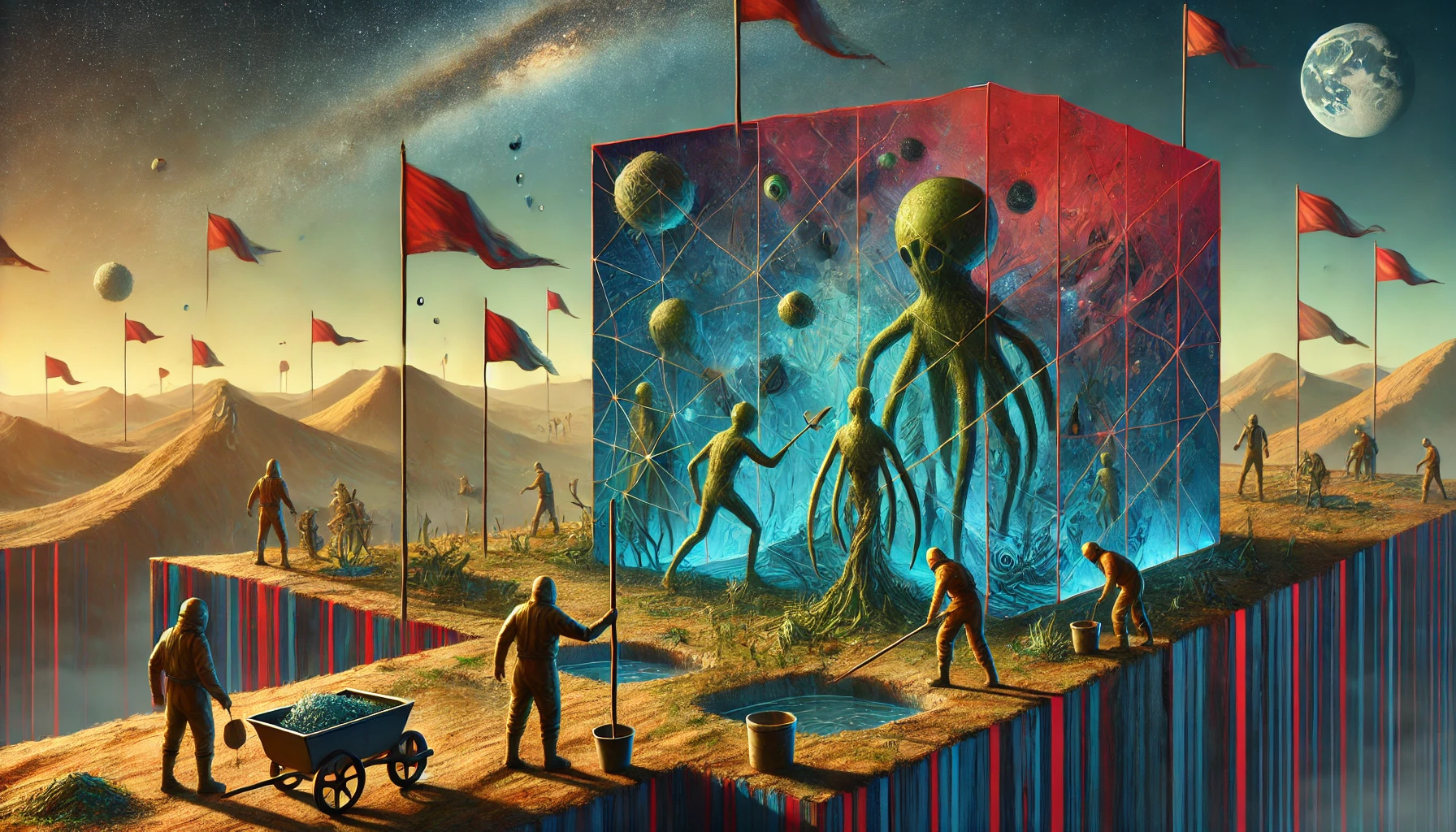
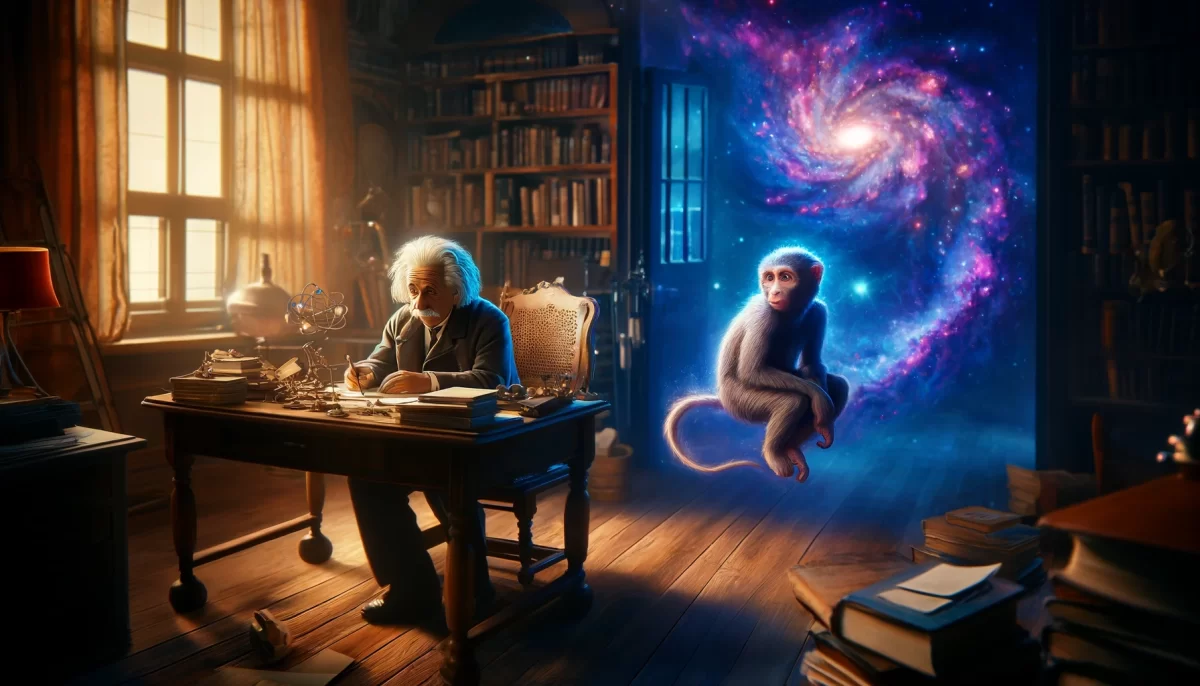
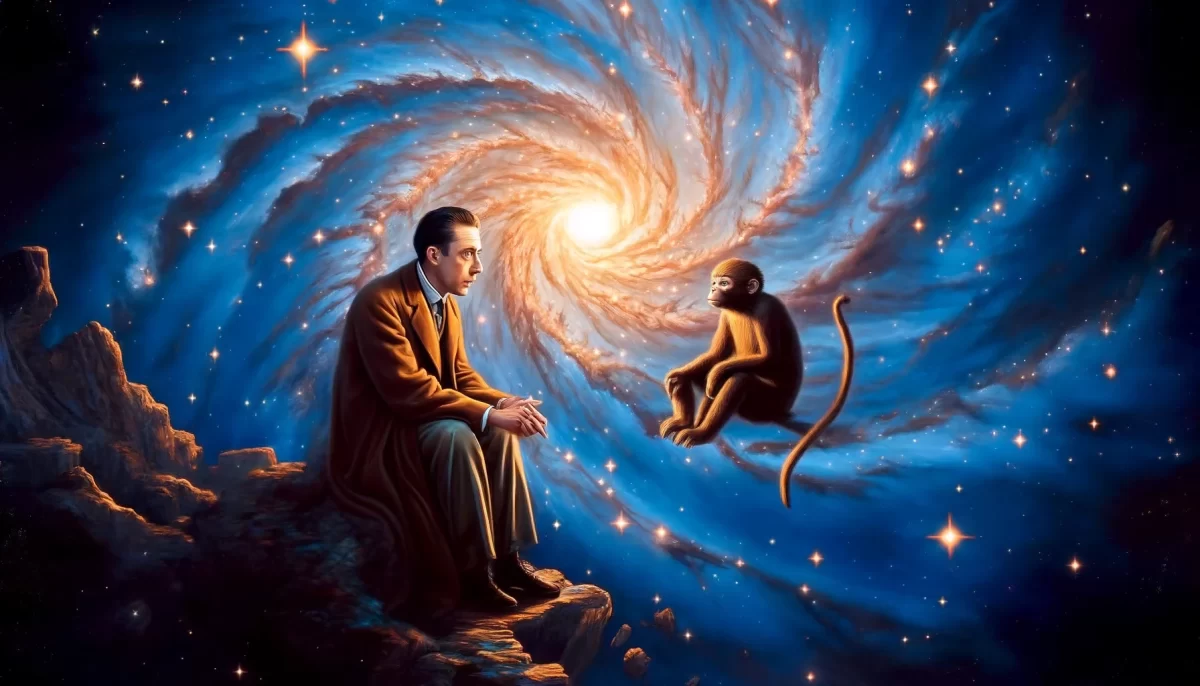


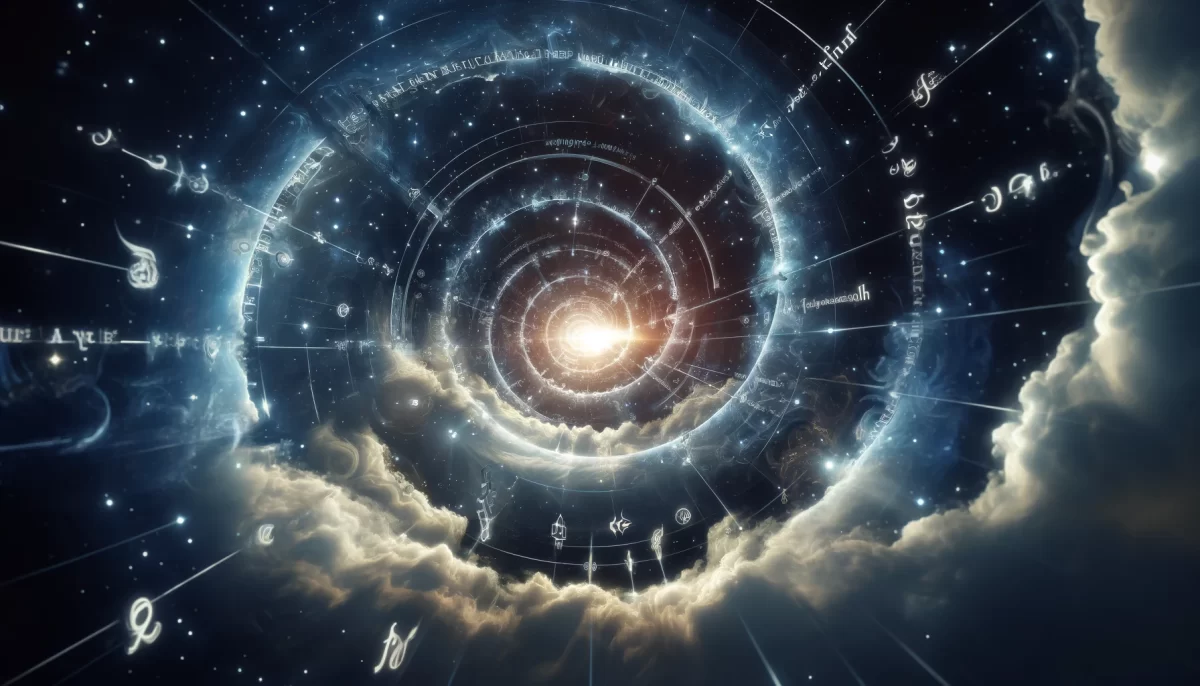




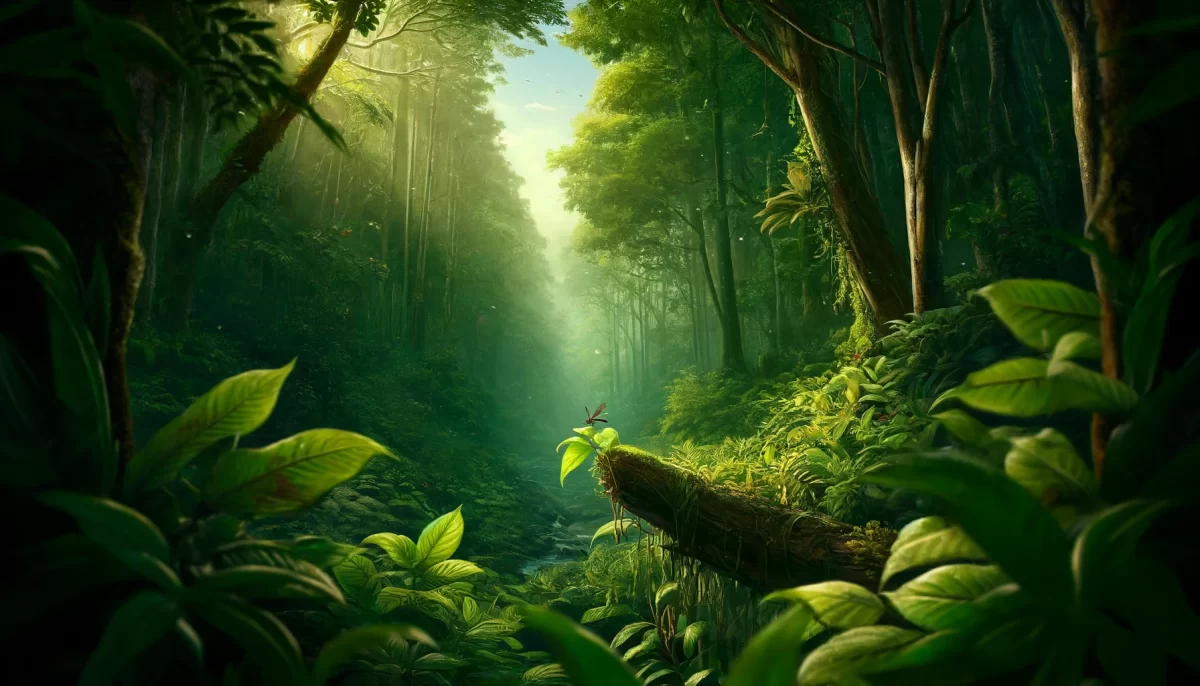

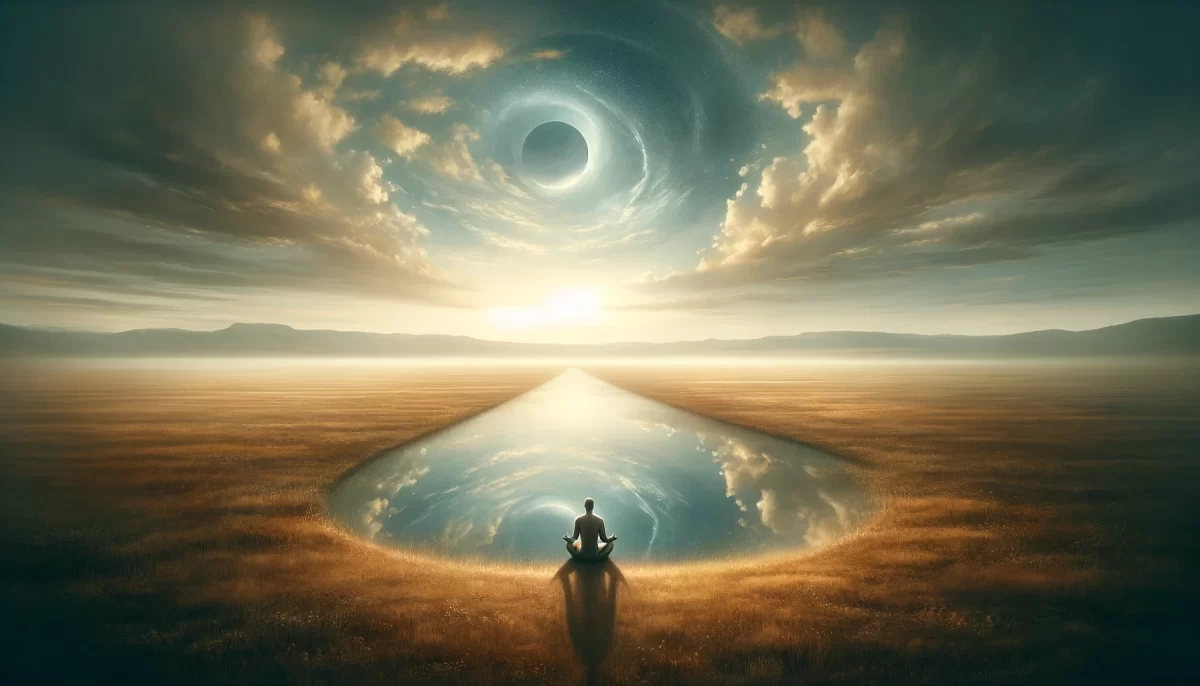
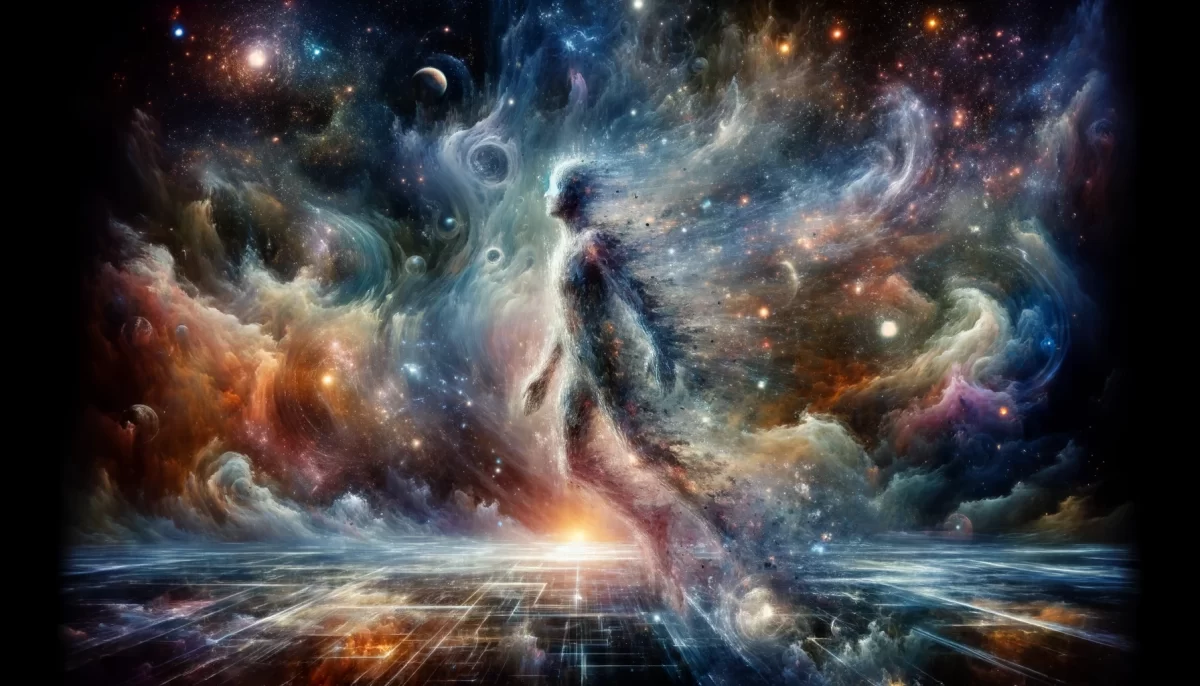
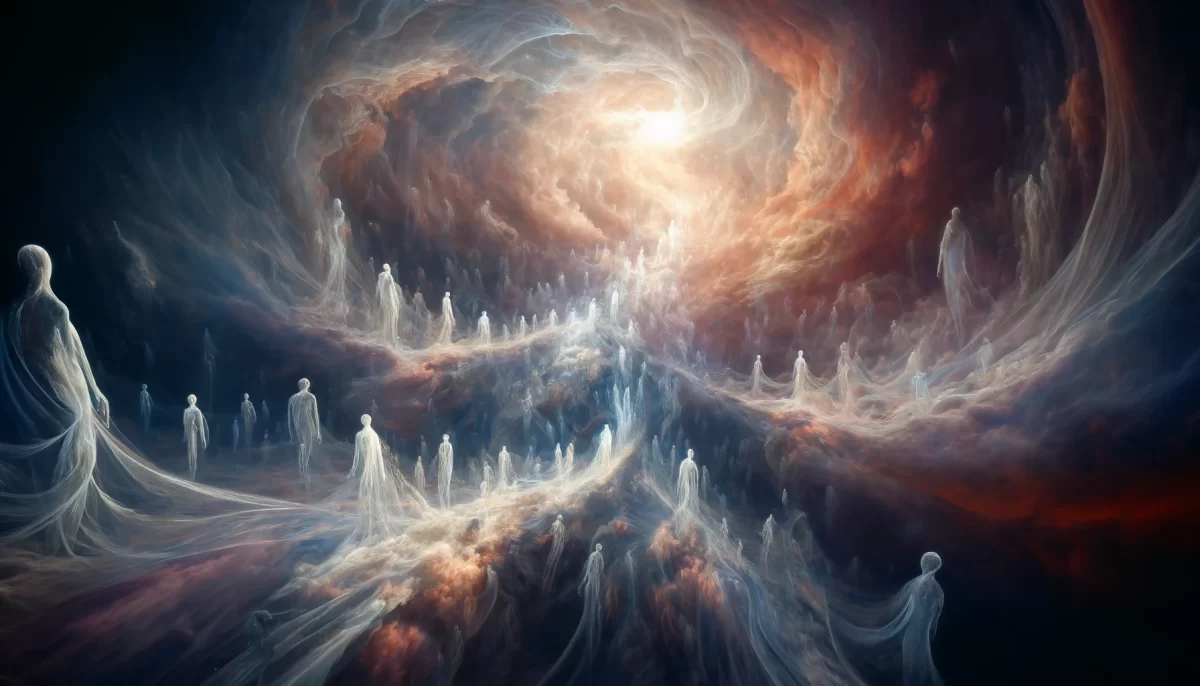
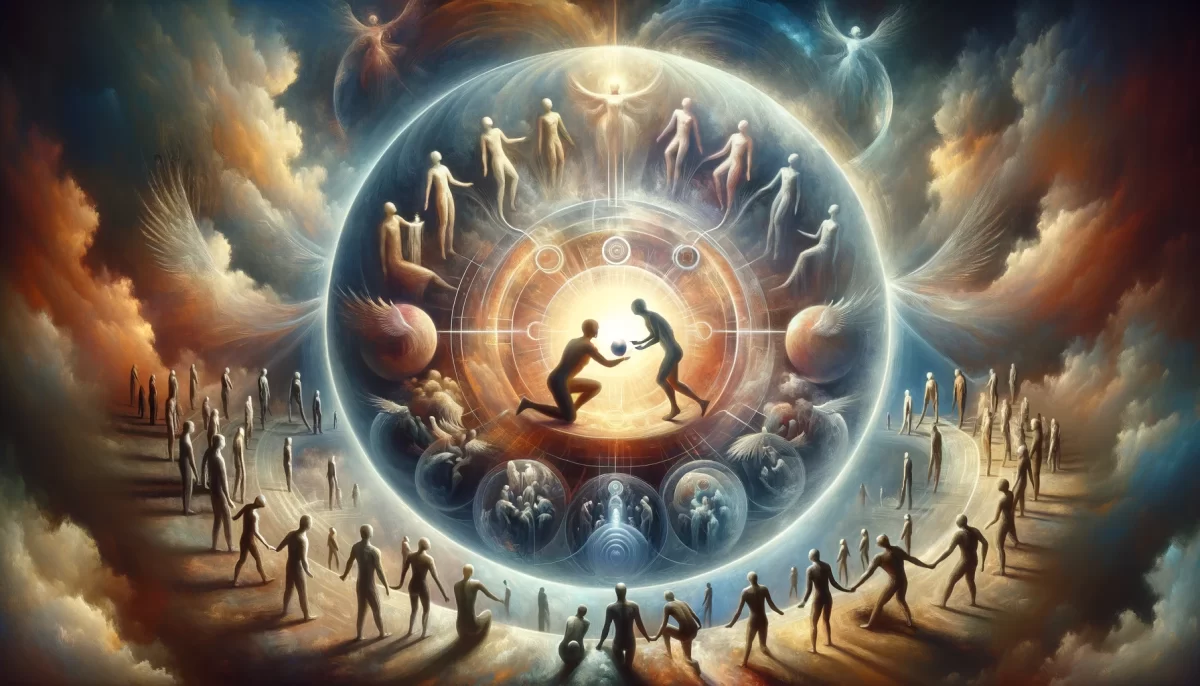

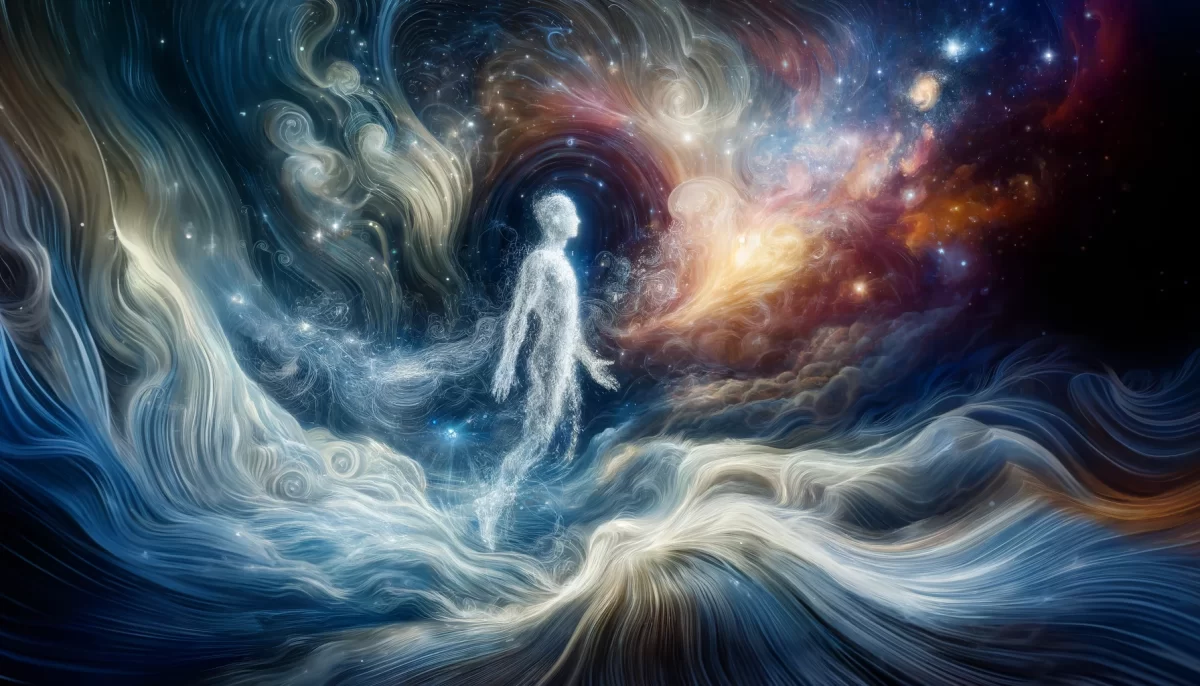
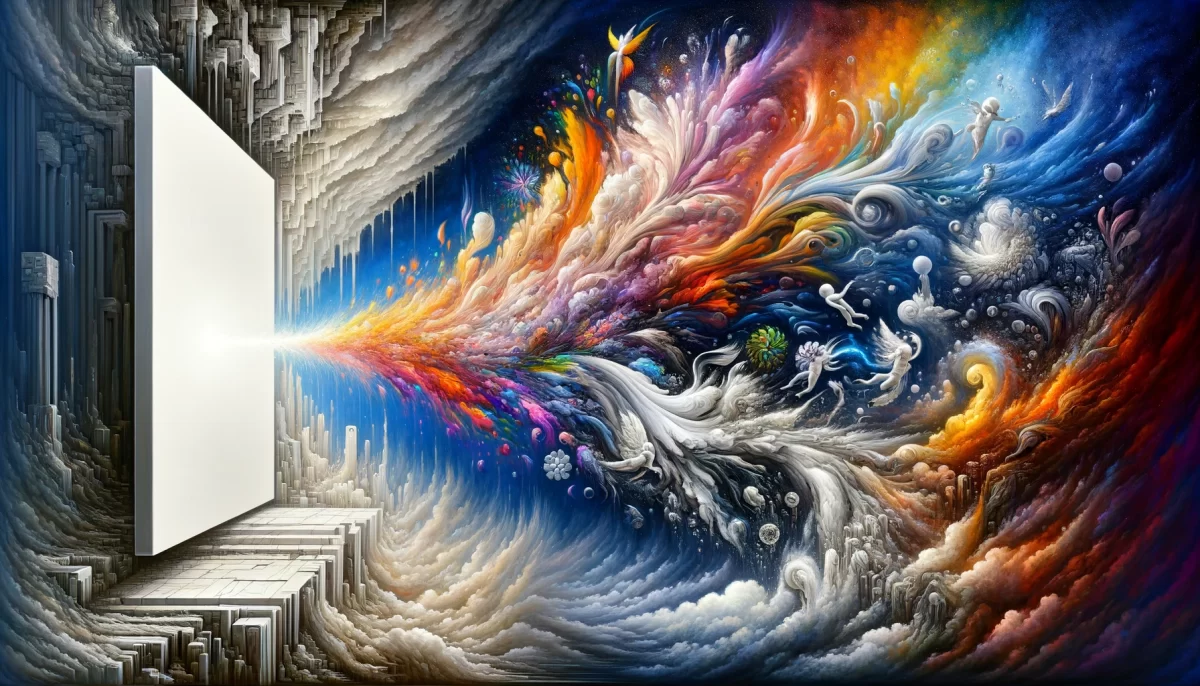
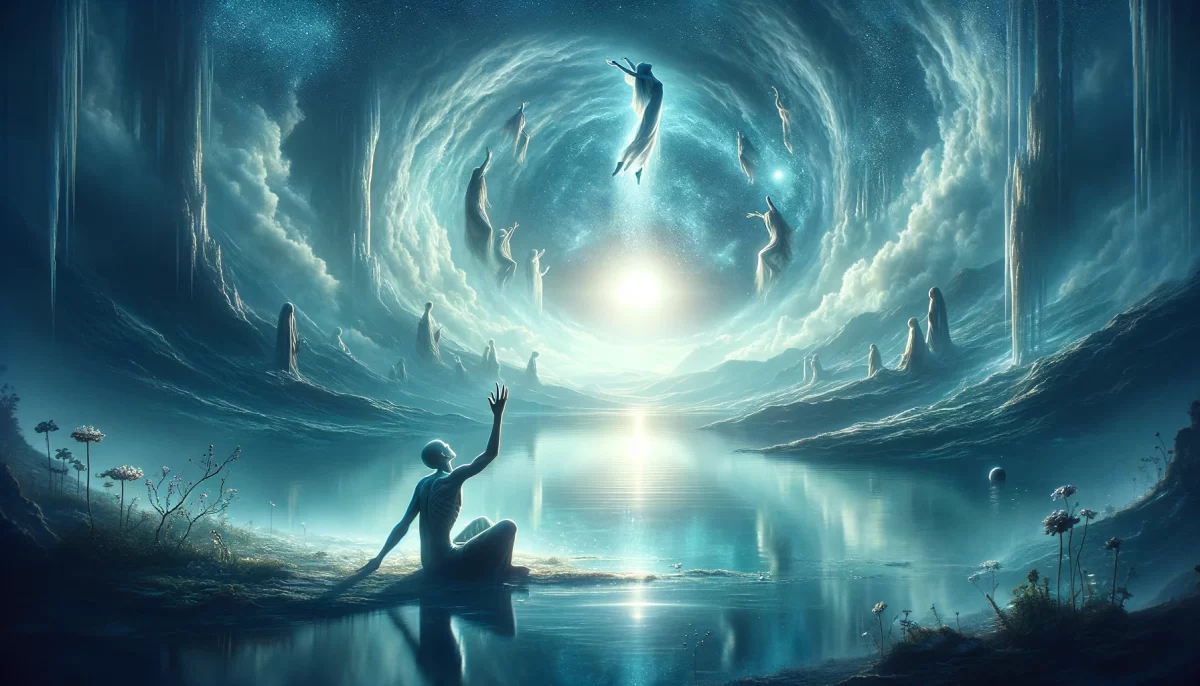
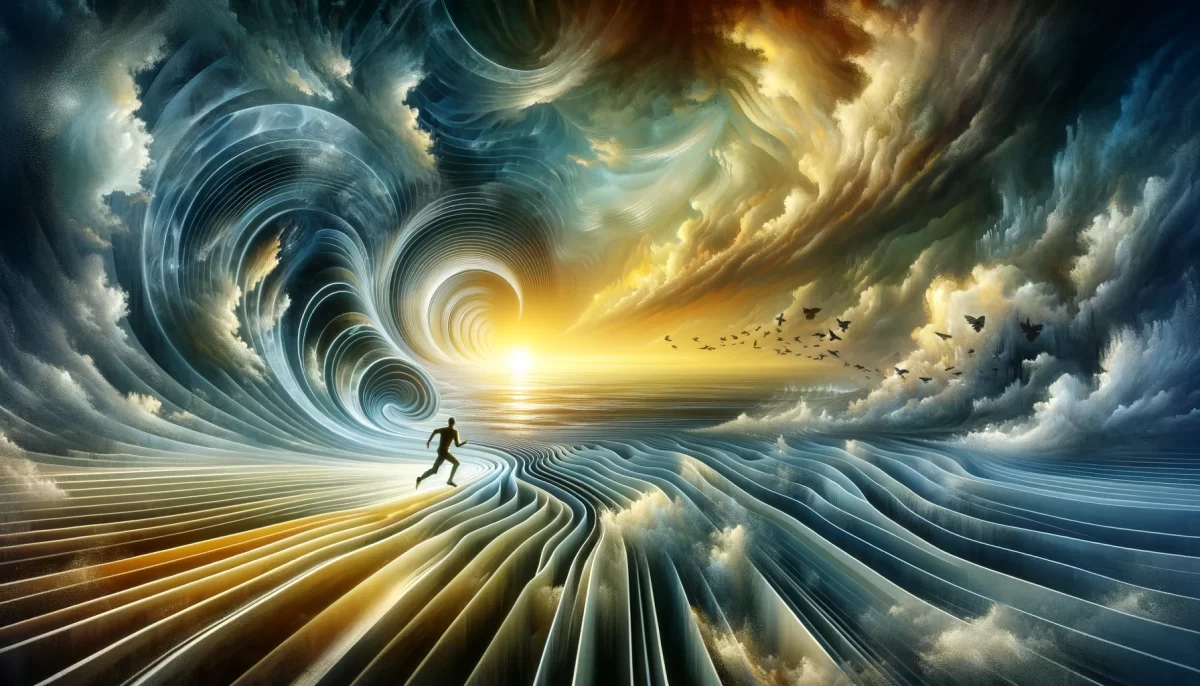
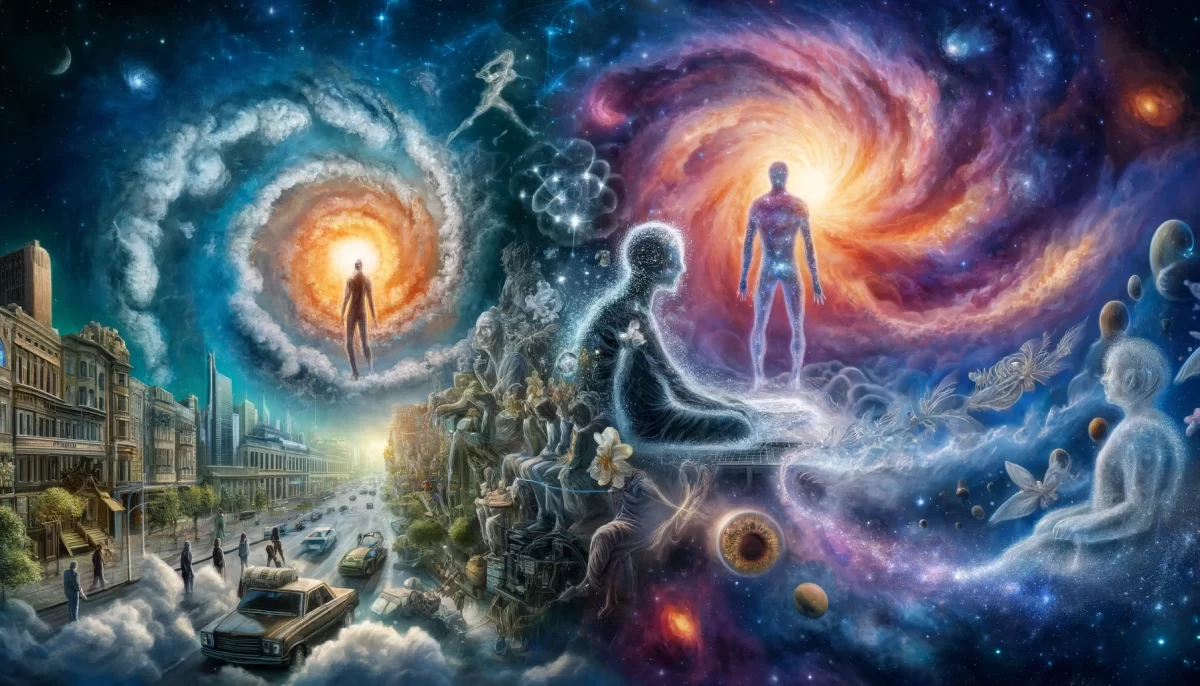
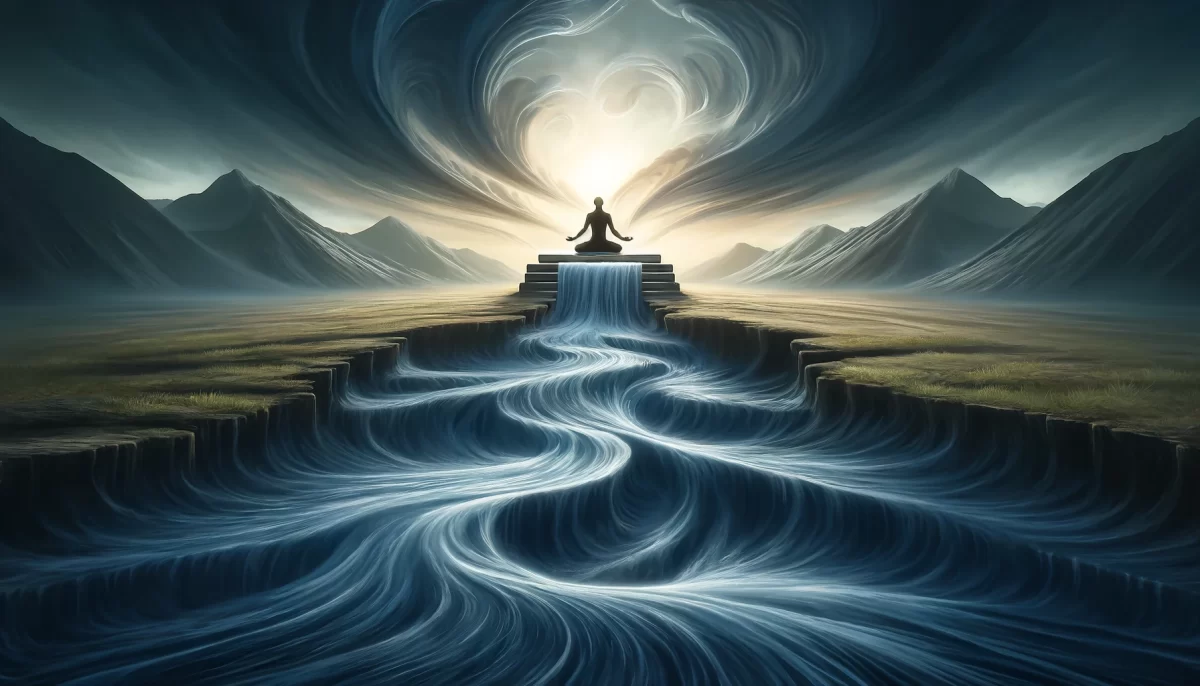
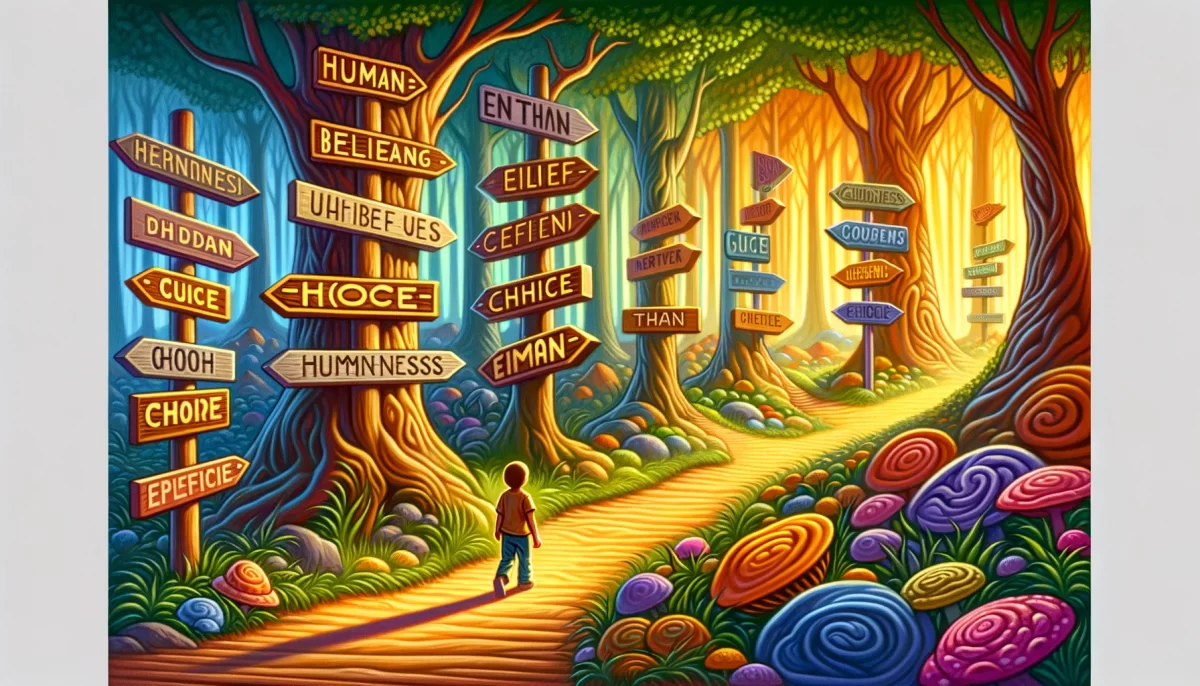
Leave a Reply